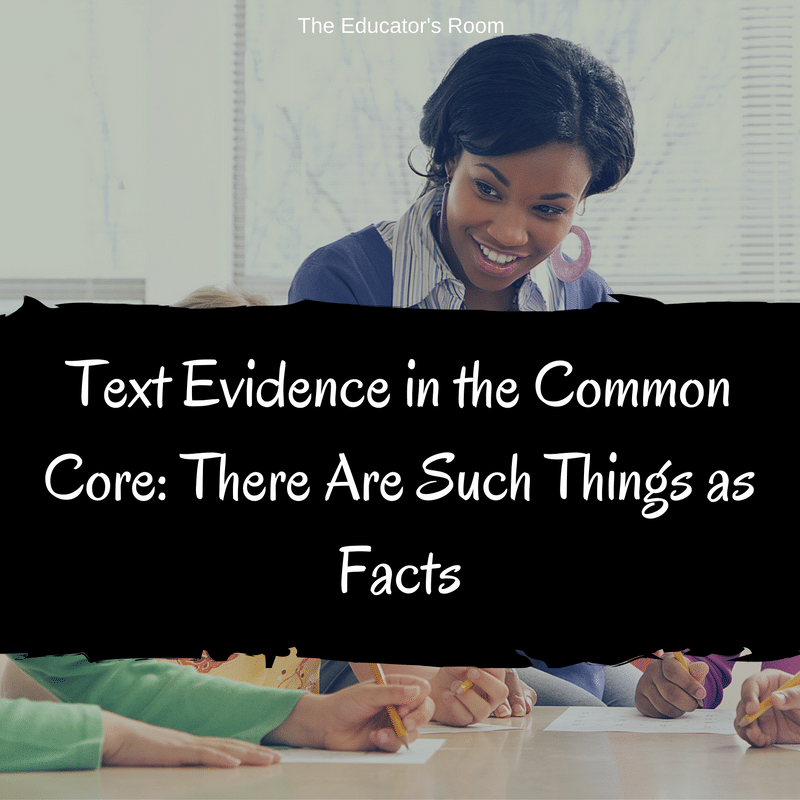The Common Core State Standards (CCSS) were released in 2009. They are now seven years old. I will admit that I was not initially enthusiastic about the English Language Arts literacy standards. I felt they were heavy in non-fiction…(no, wait.. heavy in “informational texts”).
The CCSS suggested a typical student should have a reading diet filled with informational texts because of the authentic kinds of reading they would do once they graduated, in the real world. The CCSS recommended that a ratio of 50:50 of fiction and informational texts in elementary school should shift to a 30:70 ratio of fiction to non-fiction by grade 12th. These ratios made me concerned that fiction would disappear.
I should not have worried.
The year 2016 has proven that the genre of fiction, a genre of invented or imagined stories, is thriving in the real world. Sometimes certain fictions are posing as informational text.
[bctt tweet=”Sometimes certain fictions are posing as informational text” username=”EducatorsRoom”]
The year 2016 has been marked by the rise of fake news, hoaxes, propaganda, and disinformation that has circulated on news and social media platforms, fictions that have been developed intentionally or spread unintentionally.
The growth of this kind of fiction may explain the decision of dictionary editors to award the word post-truth as the 2016 word of the year. According to the Oxford Dictionary, post-truth is is defined as
“an adjective defined as ‘relating to or denoting circumstances in which objective facts are less influential in shaping public opinion than appeals to emotion and personal belief’.”
The decision by the editors of the Oxford Dictionary to chose the word post-truth is a decision that also highlights a phenomena studied by by Troy Campbell and Justin Friesen. Their experiments tested the relationship between facts, bias, and untestable beliefs.
The March 2015 issue of the Journal of Personality and Social Psychology, published their paper titled The Psychological Advantage of Unfalsifiability: The appeal of untestable religious and political ideologies. This research examined the circumspect methods people use to get away from fact(s) that contradict a deeply held belief.
Participants in the Campbell/Freisen’s experiments used facts to support or dispute a position. The experiments revealed that when the facts opposed a deeply held belief, the participants argued that facts did not matter but moral opinion did. But, when the facts were on their side, they more often stated that their opinions were fact-based and much less about morals.
“In other words,”Campbell/Freisen’s noted, “we observed something beyond the denial of particular facts: We observed a denial of the relevance of facts.” They concluded,
“…when people’s beliefs are threatened, they often take flight to a land where facts do not matter.”
[bctt tweet=””We observed a denial of the relevance of facts.”” username=”EducatorsRoom”]
One example of a land “where facts do not matter”, was the radio booth for the Diane Rehm Showon National Public Radio (NPR) on November 30th, 2016. Guest Scottie Nell Hughes, political editor of RightAlerts.com and contributor to CNN appeared midway during the Diane Rehm’s show. Hughes was discussing the effective use of social media in bypassing more traditional media outlets to direct message. At 10:20, she made the claim that looking at facts is “kind of like looking at ratings or looking at a glass of half-full water. Everybody has a way of interpreting them to be the truth or not true.” Then she stated:
“There’s no such thing, unfortunately, anymore of facts.”
Her statement was greeted with immediate derision by other journalists on the show. James Fallows of The Atlantic magazine shot back, “First I’ve got to pick my jaw up off the floor here. There are no objective facts? I mean, that is — that is an absolutely outrageous assertion.”
Hughes statement was hardly original; she may have been channeling her inner Friedrich Wilhelm Nietzsche who had also claimed (1887), “There are no facts, only interpretations.” But Fallows dismissed such philosophies on air, concluding:
“I believe that the job for the media and civil society now is essentially to say there are such things as facts.”
In contrast to Hughes, the use of facts as supporting evidence is essential to the CCSS. The CCSS recognized that 21st Century students would need to deal with an exponential growth in information, a future where rote memorization of facts cannot keep pace with knowledge that is doubling every year. As a result, the CCSS at each grade level outlines the skills students need to identify and to incorporate relevant facts they will use to write argumentative or explanatory responses.
For example, CCSS writing standards require students to:
“Develop the topic with well-chosen, relevant, and sufficient facts, extended definitions, concrete details, quotations, or other information and examples appropriate to the audience’s knowledge of the topic.” CCSS.ELA-LITERACY.W.9-10.2.B
In addition, the Common Core promotes the use of text-based evidence , gathered when students “read closely” (aka: “close reading”):
“The Common Core emphasizes using evidence from texts to present careful analyses, well-defended claims, and clear information. Rather than asking students questions they can answer solely from their prior knowledge and experience, the standards call for students to answer questions that depend on their having read the texts with care.”
Prior knowledge or experience are no substitute for evidence. For the past seven years a common teachers’ refrain has been, “Can you show me where that evidence is in the text?”
All this hunting for text-based evidence may be the best training our students could have received as preparation for this post-truth world where pundits dismiss facts as unnecessary and media platforms promote factual inaccuracies through fake news.
Seven years ago, I could not imagine that I would be pleased about the Common Core, but the push for text-based evidence may be exactly what our students will need if educators are ever going to fulfill all those mission statements in student handbooks that outline how to make students into productive citizens and life-long learners.





